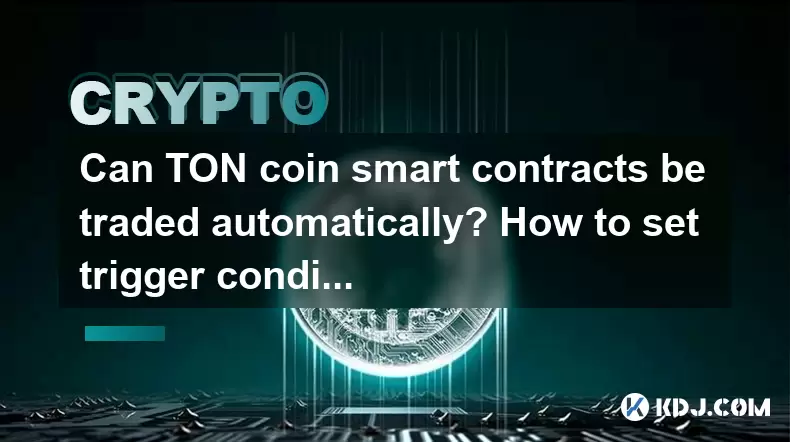-
 Bitcoin
Bitcoin $114100
-0.14% -
 Ethereum
Ethereum $3635
-0.73% -
 XRP
XRP $2.949
-2.85% -
 Tether USDt
Tether USDt $0.9999
-0.03% -
 BNB
BNB $760.3
-0.78% -
 Solana
Solana $163.8
-2.77% -
 USDC
USDC $0.9998
-0.04% -
 TRON
TRON $0.3323
-0.57% -
 Dogecoin
Dogecoin $0.2004
-2.99% -
 Cardano
Cardano $0.7245
-2.87% -
 Hyperliquid
Hyperliquid $37.52
-3.75% -
 Stellar
Stellar $0.3915
-3.58% -
 Sui
Sui $3.416
-2.20% -
 Bitcoin Cash
Bitcoin Cash $559.5
-0.84% -
 Chainlink
Chainlink $16.41
-2.16% -
 Hedera
Hedera $0.2406
-1.78% -
 Ethena USDe
Ethena USDe $1.001
0.00% -
 Avalanche
Avalanche $22.13
-1.98% -
 Litecoin
Litecoin $117.8
-4.32% -
 UNUS SED LEO
UNUS SED LEO $8.989
0.01% -
 Toncoin
Toncoin $3.183
-5.09% -
 Shiba Inu
Shiba Inu $0.00001214
-1.97% -
 Uniswap
Uniswap $9.654
-1.71% -
 Polkadot
Polkadot $3.616
-1.18% -
 Monero
Monero $291.6
-2.66% -
 Dai
Dai $0.9999
0.00% -
 Bitget Token
Bitget Token $4.310
-1.10% -
 Cronos
Cronos $0.1382
-1.93% -
 Pepe
Pepe $0.00001021
-3.40% -
 Aave
Aave $257.9
-1.42%
Can TON coin smart contracts be traded automatically? How to set trigger conditions?
TON smart contracts enable automatic trading of TON coins based on predefined conditions, enhancing efficiency in volatile markets.
May 20, 2025 at 05:14 pm

The TON (The Open Network) ecosystem, built by the Telegram team, has garnered significant attention due to its robust infrastructure and potential for decentralized applications. One of the key features of TON is its smart contract functionality, which allows for automated transactions and operations. In this article, we will explore whether TON coin smart contracts can be traded automatically and how to set trigger conditions for these transactions.
Understanding TON Smart Contracts
TON smart contracts are self-executing contracts with the terms of the agreement directly written into code. These contracts run on the TON blockchain, ensuring transparency and immutability. The TON Virtual Machine (TVM) executes these smart contracts, allowing for complex operations and interactions within the network.
Smart contracts on TON can be used for various purposes, including but not limited to, token transfers, decentralized finance (DeFi) applications, and automated trading. The ability to automate trading through smart contracts is particularly appealing to traders who wish to execute trades based on predefined conditions without manual intervention.
Can TON Coin Smart Contracts Be Traded Automatically?
Yes, TON coin smart contracts can be traded automatically. This is made possible through the use of smart contract code that defines the conditions under which trades should occur. When these conditions are met, the smart contract automatically executes the trade, ensuring that the user's predefined criteria are met without the need for manual intervention.
The automation of trading via smart contracts is a significant advantage for users who wish to capitalize on market opportunities 24/7 without constantly monitoring the market. This feature is particularly useful in volatile markets where timely execution can make a significant difference in trading outcomes.
Setting Trigger Conditions for TON Smart Contracts
To set trigger conditions for TON smart contracts, users must write or use existing smart contract code that specifies the conditions under which the contract should execute. Here is a detailed guide on how to set these trigger conditions:
Choose a Smart Contract Development Environment: Start by selecting a suitable development environment for writing TON smart contracts. Popular choices include FunC (Functional Contract Language) and TON Labs' Solidity-like language.
Define the Trigger Conditions: Clearly define the conditions that will trigger the smart contract to execute a trade. These conditions can be based on price thresholds, time intervals, or other market indicators. For example, a condition could be set to buy TON coins when the price falls below a certain level.
Write the Smart Contract Code: Use the chosen development environment to write the smart contract code. Ensure that the code accurately reflects the trigger conditions you have defined. Here is a simple example of a smart contract in FunC that triggers a trade based on price:
int main() {int current_price = get_price();
if (current_price < 100) {
buy_ton_coins();
}
return 0;
}
Compile and Deploy the Smart Contract: Once the code is written, compile it using the TON compiler. After compilation, deploy the smart contract to the TON blockchain. This can be done using the TON OS CLI or other deployment tools provided by TON Labs.
Test the Smart Contract: Before going live, thoroughly test the smart contract in a testnet environment to ensure that the trigger conditions work as expected. Make any necessary adjustments based on the test results.
Monitor and Adjust: After the smart contract is deployed and operational, monitor its performance and adjust the trigger conditions as needed based on market changes or other factors.
Tools and Platforms for Automating TON Smart Contract Trading
Several tools and platforms can facilitate the automation of TON smart contract trading. These include:
TON Wallet: The official TON wallet provides a user-friendly interface for interacting with smart contracts. Users can set up and manage their smart contracts directly from the wallet.
TON Labs: TON Labs offers a suite of tools for developing, deploying, and managing TON smart contracts. Their platform includes a development environment, testing tools, and deployment services.
Third-Party Services: Various third-party services and platforms specialize in automated trading using blockchain technology. These services often provide user-friendly interfaces for setting up and managing smart contracts without requiring extensive coding knowledge.
Security Considerations for Automated TON Smart Contract Trading
When automating trading through TON smart contracts, it is crucial to consider security. Here are some key security considerations:
Code Audits: Before deploying a smart contract, conduct thorough code audits to identify and fix any vulnerabilities. Engage with professional auditors who specialize in blockchain security.
Access Controls: Implement robust access controls to prevent unauthorized modifications to the smart contract. Use multi-signature wallets for added security.
Regular Updates: Keep the smart contract code updated to address any newly discovered vulnerabilities. Regularly review and update the trigger conditions to ensure they remain relevant and effective.
Monitoring: Continuously monitor the smart contract's performance and the blockchain for any suspicious activities. Use tools that provide real-time alerts for unusual transactions or contract executions.
Practical Examples of Automated TON Smart Contract Trading
To illustrate how automated TON smart contract trading works, let's consider a few practical examples:
Price-Based Trading: A user sets up a smart contract to automatically buy TON coins when the price falls below a certain threshold and sell when it rises above another threshold. This strategy can help users capitalize on price fluctuations without manual intervention.
Time-Based Trading: A smart contract can be programmed to execute trades at specific times of the day or week, allowing users to take advantage of regular market patterns or scheduled events.
Volume-Based Trading: Another strategy involves setting up a smart contract to trade based on trading volume. For instance, the contract could be set to buy when the trading volume exceeds a certain level, indicating increased market activity.
FAQs
Q: Can I use existing smart contract templates for TON trading?
A: Yes, there are existing smart contract templates available for TON trading. These templates can be customized to fit your specific trading strategies and trigger conditions. Platforms like TON Labs and other third-party services often provide a library of templates that can be adapted for various purposes.
Q: How can I ensure that my TON smart contract trading remains profitable?
A: To ensure profitability, regularly review and adjust your trading strategies based on market conditions. Use backtesting tools to evaluate the performance of your smart contract before deploying it to the mainnet. Additionally, consider diversifying your trading strategies to mitigate risks.
Q: What are the potential risks associated with automated TON smart contract trading?
A: The main risks include smart contract vulnerabilities, market volatility, and regulatory changes. To mitigate these risks, conduct thorough code audits, implement strong security measures, and stay informed about market and regulatory developments.
Q: Can I automate trading for other cryptocurrencies using TON smart contracts?
A: While TON smart contracts are primarily designed for the TON ecosystem, it is possible to interact with other blockchains through cross-chain protocols or decentralized exchanges (DEXs) that support TON. However, this requires additional complexity and may involve additional fees and risks.
Disclaimer:info@kdj.com
The information provided is not trading advice. kdj.com does not assume any responsibility for any investments made based on the information provided in this article. Cryptocurrencies are highly volatile and it is highly recommended that you invest with caution after thorough research!
If you believe that the content used on this website infringes your copyright, please contact us immediately (info@kdj.com) and we will delete it promptly.
- Coinbase, Financing, and the Crypto Market: Navigating Choppy Waters in NYC Style
- 2025-08-06 12:50:11
- Bitcoin in Indonesia: Crypto Education and Economic Strategy
- 2025-08-06 12:50:11
- DeriW Mainnet: Zero Gas Fees Revolutionize On-Chain Derivatives Trading
- 2025-08-06 10:30:11
- IOTA, Cloud Mining, and Eco-Friendly Crypto: A New York Investor's Take
- 2025-08-06 10:30:11
- Kaspa (KAS) Price Prediction: August 6 - Will It Break Free?
- 2025-08-06 10:50:12
- Pension Funds, Bitcoin ETFs, and Exposure: A New Era of Institutional Crypto Adoption
- 2025-08-06 12:55:12
Related knowledge

What is Chainlink (LINK)?
Jul 22,2025 at 02:14am
Understanding Chainlink (LINK): The Decentralized Oracle NetworkChainlink is a decentralized oracle network designed to bridge the gap between blockch...

What is Avalanche (AVAX)?
Jul 22,2025 at 08:35am
What is Avalanche (AVAX)?Avalanche (AVAX) is a decentralized, open-source blockchain platform designed to support high-performance decentralized appli...

What is Polkadot (DOT)?
Jul 19,2025 at 06:35pm
Understanding the Basics of Polkadot (DOT)Polkadot (DOT) is a multi-chain network protocol designed to enable different blockchains to transfer messag...

What is Litecoin (LTC)?
Jul 23,2025 at 11:35am
Overview of Litecoin (LTC)Litecoin (LTC) is a peer-to-peer cryptocurrency that was created in 2011 by Charlie Lee, a former Google engineer. It is oft...

What is Monero (XMR)?
Jul 21,2025 at 10:07am
What is Monero (XMR)?Monero (XMR) is a decentralized cryptocurrency designed to provide enhanced privacy and anonymity for its users. Unlike Bitcoin a...

How to add indicators to Ethereum chart on TradingView?
Jul 19,2025 at 07:15am
What Is an Ethereum Chart on TradingView?The Ethereum chart on TradingView is a visual representation of the price movement of Ethereum (ETH) over a s...

What is Chainlink (LINK)?
Jul 22,2025 at 02:14am
Understanding Chainlink (LINK): The Decentralized Oracle NetworkChainlink is a decentralized oracle network designed to bridge the gap between blockch...

What is Avalanche (AVAX)?
Jul 22,2025 at 08:35am
What is Avalanche (AVAX)?Avalanche (AVAX) is a decentralized, open-source blockchain platform designed to support high-performance decentralized appli...

What is Polkadot (DOT)?
Jul 19,2025 at 06:35pm
Understanding the Basics of Polkadot (DOT)Polkadot (DOT) is a multi-chain network protocol designed to enable different blockchains to transfer messag...

What is Litecoin (LTC)?
Jul 23,2025 at 11:35am
Overview of Litecoin (LTC)Litecoin (LTC) is a peer-to-peer cryptocurrency that was created in 2011 by Charlie Lee, a former Google engineer. It is oft...

What is Monero (XMR)?
Jul 21,2025 at 10:07am
What is Monero (XMR)?Monero (XMR) is a decentralized cryptocurrency designed to provide enhanced privacy and anonymity for its users. Unlike Bitcoin a...

How to add indicators to Ethereum chart on TradingView?
Jul 19,2025 at 07:15am
What Is an Ethereum Chart on TradingView?The Ethereum chart on TradingView is a visual representation of the price movement of Ethereum (ETH) over a s...
See all articles

























































































